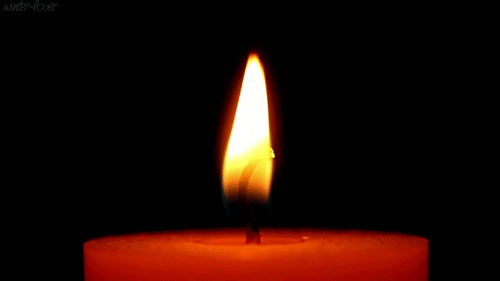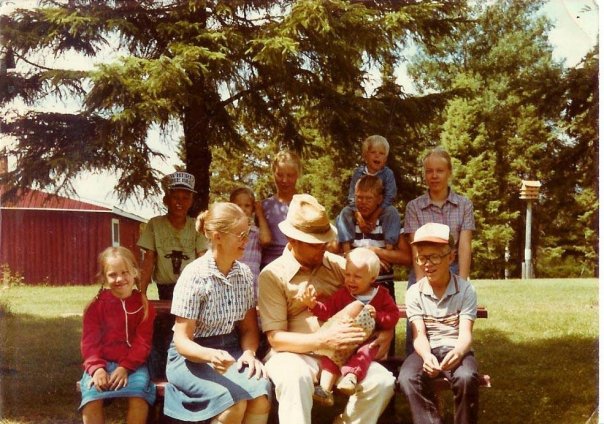I happened across this article while doing some late night research. While I am not familiar with this specific Apostolic church tradition, I also grew up in an Apostolic Lutheran Church tradition. I started leaving when I was 19 didn’t completely leave until I was 22, due to trying to live in both worlds and trying to pacify family. To those who wonder why folk don’t leave. Perhaps the #1 reason is because being raised in this means you have NO other contacts/friends/family. If you leave, you are not just leaving a church, you are literally leaving your family and your friends. Everyone. All gone. All at once. Now it may be, that a few may buck the system and remain in a relationship with you, but there’s no way to know that ahead of time.
It’s important to note that the Laestadian’s (forgive my spelling) have split into many different churches. So what was true for one person in one group is not necessarily true for another person in another group. Additionally, even in the specific group I grew up in there are conflicting views and I often hear cries like the one above, that “WE” don’t teach (xyz). All I can say is, **I** was taught.
I wish folk would step back a bit and realize that one person’s experiences may not have anything to do with THEM. Rather than posting and saying, a broad brushing we would never statement, why not say, in the specific group I was raised in, this was not the case. And then perhaps offer that those who attend where this kind of extreme legalism is in place, might find a new church home with you. Then offer them your personal information or at least your church’s information! Yadda yadda. You know, be HELPFUL, instead of trying to make people who have been abused not talk about it. And it is/was spiritual abuse.
Many things were taught non verbally. This also contributes to the indignant cry ‘we never taught’. Yeah. Well. Here’s the thing. If a child grows up knowing they should only be friends with people from the church. They should only marry a ‘true believer’ and true believer is always understood to be ‘in THE church’. And preachers regularly talk about every other church as ‘dead faith churches’, etc and so forth, they don’t HAVE to come right out and say, All other churches are going to hell. It’s implied. The children grow up believing that. And when you leave and are battling cancer and your mother writes you a letter saying she hopes you don’t die before you see the error of your ways (no this wasn’t me)… well…. it’s pretty obvious that everyone not in ‘THE group’ is going to hell. Just as it is implied in OH so many ways that couples should have as many children as they can pop out regardless. From the time I was a small child, it was understood without so many words being said, that as a female it was expected that I would meet a “christian” (i.e. fellow ALC member) husband, get married, and have children. There was no concept of doing anything else. I was taught college was a sin and would lead me ‘astray’. It was understood, I should simply work whatever job supplied enough food and shop for a husband.
This sort of self protectiveness is quite common. Since so many things are taught via custom, non verbally, and through hearing the adults taught when you are a child, it is EASY to deny they were ever taught. And I truly believe the deniers believe it themselves. They are not lying per say, they have most often, deceived themselves. After all, who remembers the conversation they hear as a child playing in the corner while their mother and others “discuss” and “tsk” the waywardness of some person or another who did some seemingly harmless thing and yet clearly it must be a horrible thing or why are they tsking it? But you see, NO ONE will ever talk about it. The child forms their beliefs and forgets the actual conversation that caused the belief. And since the adults were gossiping they will never admit they said what they said. And when their belief is confronted head on, it sounds unpleasant because rarely do their actual beliefs line up with what they KNOW to be true. So they deny it.
This does apply directly to child abuse. I have personal experience with dealing with a family where there was incest among siblings and cousins from young teens to toddlers. Yet not a single soul in the family is willing to discuss this openly and honestly and have instead blamed one of the victims who insisted there needed to be honest, open, discussion. Over the years, more and more putrid details have risen to the surface and it has become more apparent that various adults (at the time the incest was happening) likely know far more than they are admitting, thus their refusal to have an honest discussion. But by golly, they are good people, godly people, forgiven people. I have to ask. HOW can one be forgiven if they ask for forgiveness from someone OTHER than the person who they did the wrong to??? If I punch you in the nose and ask Jim for forgiveness, does this make sense? Their very system of forgiveness is flawed and is being utilized by abusers to hide. Once the person ‘asks forgiveness’ the victim is then told they are to never talk about it again. This is said, EVEN IF the person asked forgiveness from someone else and the victim had no knowledge of it. It is also said if the person asks forgiveness for something completely not relevant. For example, Bob punches Joe in the nose. Bob then asks Joe to forgive him for raising his voice. Joe is then supposed to ‘move on’ from Bob punching him in the nose because Bob ‘had it forgiven’. It is ludicrous and childish and beyond narcissistic. To those who want to say, this doesn’t happen. Sorry it does. I am not the only one who has seen this, experienced this, dealt with this. I could sit and write here all night, with real life examples of similarly nasty things. These things have nothing to do with being “imperfect”. They have to do with blatantly living IN SIN.
People can say, you need to research, but it seems to me, the comments of those who LIVED It ARE research. We are not lying. We are not making this stuff up. Those of us who have left have been through years of emotional damage to do so. We have endured judgement and anger. We have been randomly attacked (verbally) in grocery stores and gas stations. We have had close family pretend to not see us in stores. We have been told by close family we are going to hell. Some have died with our own mother refusing to sit by our side. We have been sat down and ‘set straight’ by those who think they are more loving than those who just outright attack. We have had our faith, our character, our reputations slandered. We have had our children approached in public and told we are liars. We have been called names. If the churches of this tradition are as loving and nice and open and wonderful as so many would claim, then WHY is it a commonly told story that people who leave are treated so horribly?
One last thing. While I was still in the church, I started visiting another church. I hid it because I knew it would NOT be accepted, but I wanted to know because I was watching people I worked with and seeing that they truly believed in God the same as me. I visited another church, while continuing to faithfully attend the ALC church service. This went on for several months. No one was the wiser. And NO ONE treated me any differently. No one had a problem with me. No one questioned anything I said in Bible study type discussions. Until. The fateful day when someone found out. And told someone else. Who confronted me in a restaurant in front of a group. It was a very simple conversation. “I heard you’ve been visiting another church.” “Yep” “I heard it’s a BAPTIST (said like it’s a dirty word) church” “Yep” LOOOOONG pause. “Well you AREN’T going to KEEP going are you???” “Probably”. Silence. The entire group got up as one and left. THAT showed me the lie. The lie that we don’t say others are going to hell. If that’s true, then why did they care? Behavior ALWAYS tattles on your true beliefs folks. It doesn’t matter what you SAY. What matters is what you DO.











